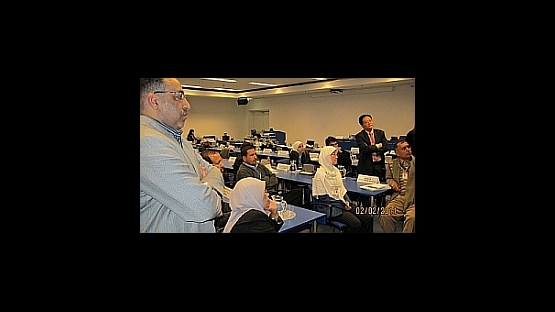The Department of Technical Cooperation (TC) works to facilitate the contribution of nuclear science and technology to sustainable development goals of the IAEA Member States. Each year hundreds of technical cooperation projects are undertaken within various thematic areas in pursuit of this objective.
To contribute to ensuring the success of these projects, the Quality Assurance Section (QAS) team of training experts in TC's Division of Programme Support and Coordination (TCPC) offers year-round training to all project participants. The training aims to clarify, streamline and improve the TC project planning and design process.
The number of trainings provided has increased considerably over the past few years. Training events have proven to be an effective channel for conveying project planning expertise to all stakeholders in the process, improving project design quality and thereby ensuring maximum programme impact. "Through systematic training, we are making sure that our counterparts are equipped with the necessary tools to formulate their national and regional projects," says Donatella Magliani, Director of TCPC.
Technical cooperation projects are planned and designed using a methodology called the Logical Framework Approach (LFA). This approach is applied by a range of international organizations to conceptualize development and aid activities. The technique helps Member States to define the course of an entire project, identifying key problems, solutions to address them and feasible alternatives for implementation. If used with integrity, the LFA provides a consistent schematic and assists in project planning, implementation, monitoring and evaluation. "Good planning is half the work done!" says Jette Jensen, LFA trainer and consultant.
The IAEA training in applying the LFA in technical cooperation projects is delivered through a series of one-day to one week training workshops in which the TCPC training team assists National Liaison Officers (NLO), National Liaison Assistants (NLA), national counterparts, as well as Secretariat staff to understand the LFA logic and recognize the relevant analytical steps of the project design process. Training concentrates in particular on the design of project documents and the Logical Framework Matrix (LFM). The workshops are offered either at the IAEA headquarters in Vienna or in the field.
The LFA training is built around group work and is designed to facilitate open discussion between the participants to reach an agreement on a common strategy, thus generating commitment to its implementation. Analytical steps are demonstrated through practical on-site group exercises. "Team work with different stakeholders is a key aspect of an efficient use of the methodology, as it provides better understanding of the views and interests of all parties involved and is an important prerequisite for ownership and sustainability of the projects," explains senior training officer Galya Dimitrova. "We strive for constant improvement of the project cycle management process, from the planning and design of the projects, through the implementation, monitoring and evaluation"
Between November 2010 and May 2011, 20 training workshops on the LFA were carried out, 13 at the regional level. The 13 regional workshops were attended by a total of 379 CPs, technical experts, NLOs and NLAs from all regions, while 97 staff members (PMOs, PMAs and TOs) attended internal LFA workshops. The workshops built on previous experiences in the regions, but mark the first time that training on the logical framework approach and terminology has been harmonized across all regions.
The 2010/2011 LFA workshops were well received by all stakeholders. "We are glad to see the response our trainings generate from those participating, and hope that ultimately they will contribute to higher quality projects" concludes training officer Frank Campbell.


